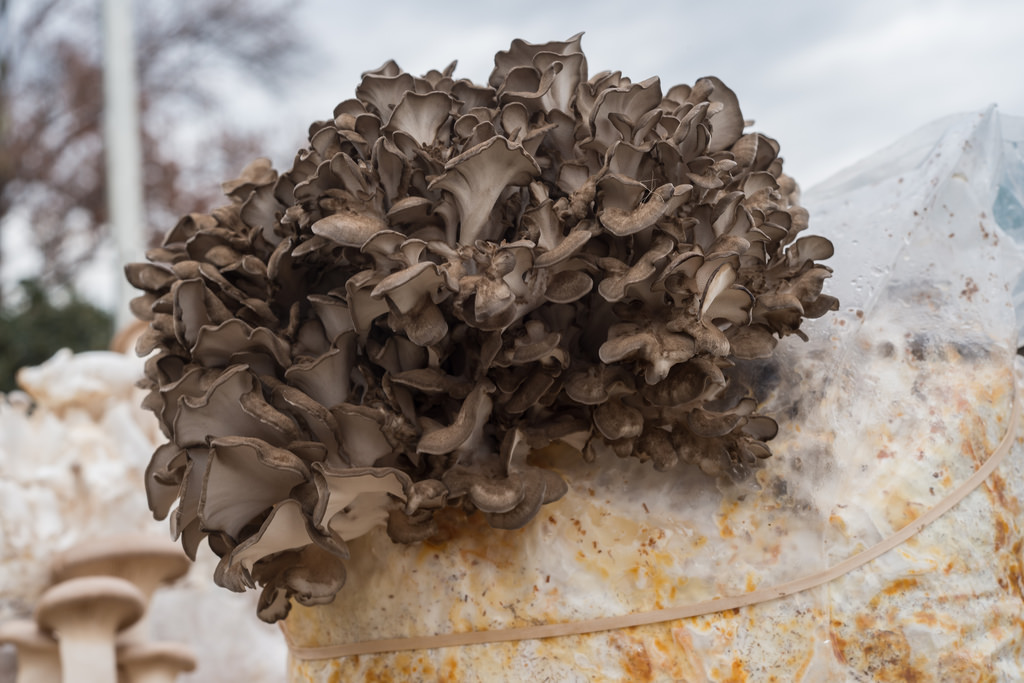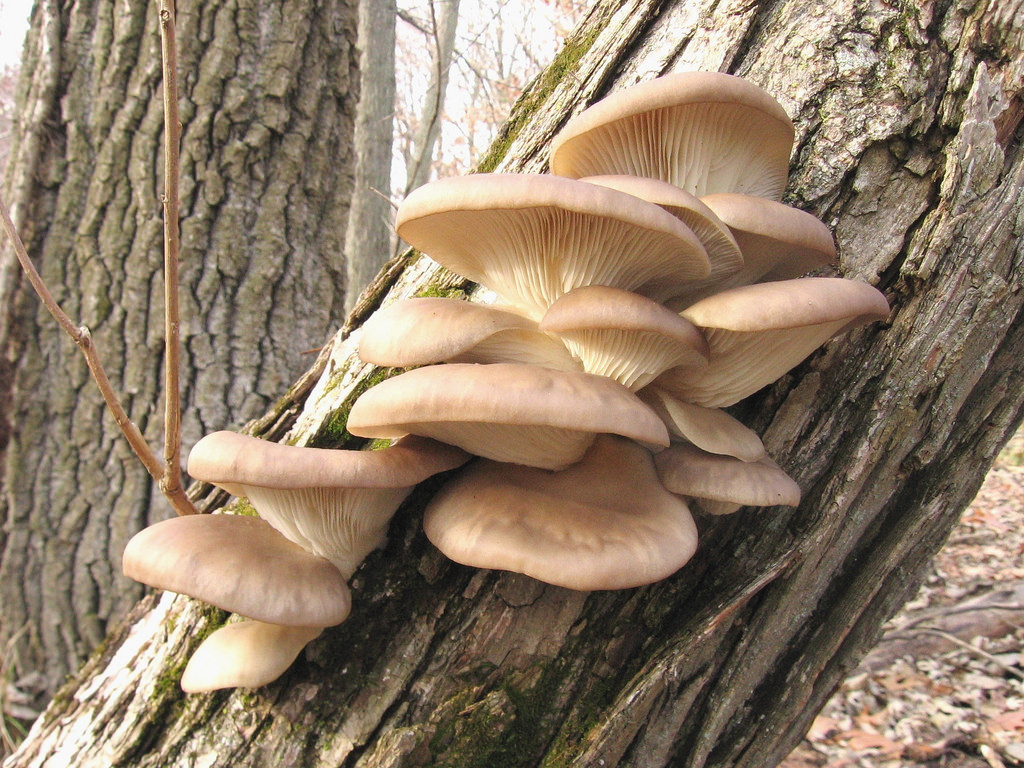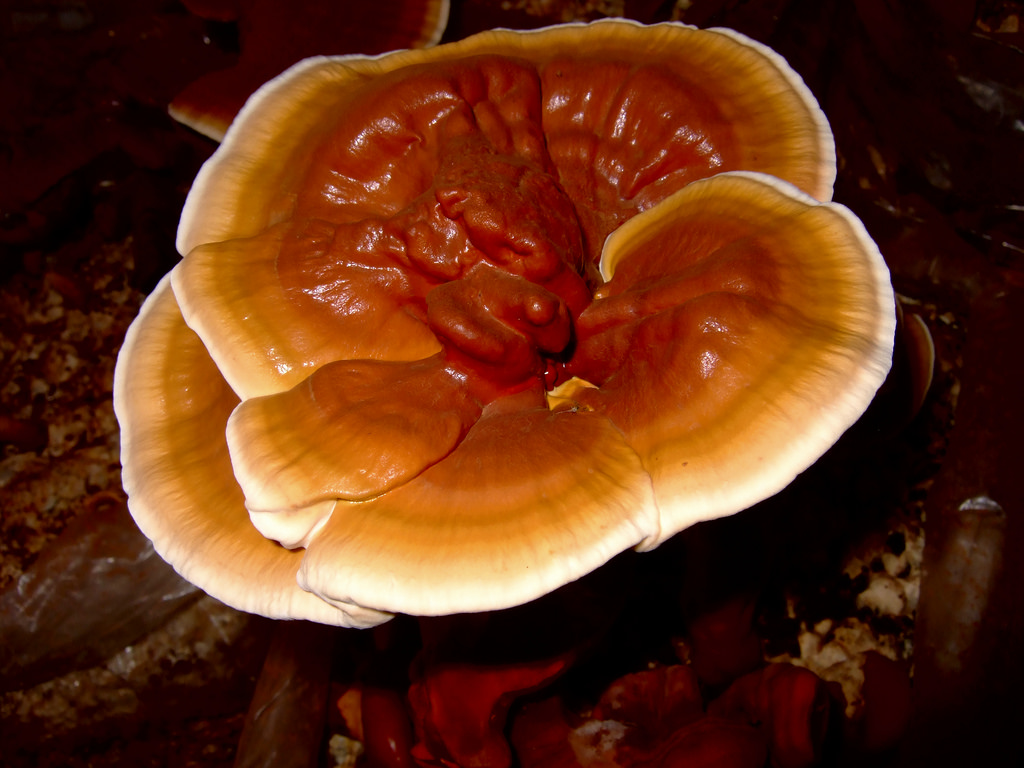Do Mushrooms Really Improve Your Health?

By:
Mushrooms have long captivated psychonauts and plant biologists — but in recent years, medicinal fungi has also started trending in health and wellness circles.
"Wherever you found a goji berry two years ago, now you’re finding a cordycep or a reishi mushroom," Ryland Engelhart, co-owner of vegan chain restaurant Cafe Gratitute, told Bon Appétit. "I wouldn’t be surprised if Le Pain Quotidien starts doing one soon."
Shroom believers have cited studies indicating that certain fungi available in the produce aisle could improve immunity, prevent certain types of cancer, remove plaque, and reduce fat. Some health experts aren't convinced, though.
Here's what the science says about four mushroom families at the center of this health trend.
1. Maitake mushrooms: Cancer prevention.
 Flickr - staticflickr.com
Flickr - staticflickr.com
A 2010 study published in the journal Experimental Biology and Medicine found that breast cancer cells spread 33 percent slower in individuals who consumed maitake mushroom extracts, compared to those who didn't. The following year, a study published in the Journal of Medicinal Foods determined that maitake killed breast cancer cells and its ingredients appeared to be "crucial for the development of preventive and therapeutic strategies for cancer."
But the science isn't quite settled. After giving breast cancer patients maitake extracts for three weeks, researchers at the Memorial Sloan-Kettering Cancer Center found that the substance boosted some immune functions while slowing others, casting doubt on the mushroom's ability to fight cancer.
2. Shiitake mushrooms: Immune booster.
.jpg?auto=format&crop=faces&fit=crop&q=60&w=736&ixlib=js-1.1.0) Wikimedia - wikimedia.org
Wikimedia - wikimedia.org
Eating this common mushroom on a daily basis can boost your immunity, according to a 2015 study conducted by researchers at the University of Florida's Institute of Food and Agricultural Sciences. After consuming one, four-ounce mushroom daily for four weeks, the study participants had "better-functioning gamma delta T-cells and reductions in inflammatory proteins," blood tests revealed.
3. Oyster mushrooms: Improves cardiovascular health.
 Flickr - staticflickr.com
Flickr - staticflickr.com
Over the past two decades, researchers have investigated how regular consumption of oyster mushrooms affects cardiovascular health. A 1999 study published in the Wageningen Journal of Life Sciences concluded that, for those whose diet consists of 1 percent of cholesterol or less, incorporating dried oyster mushrooms reduced overall cholesterol levels by 65 percent in three animals that were tested.
"Oyster mushroom diet reduced significantly the incidence of atherosclerotic plaques... as well as plaque size," the study authors wrote. "While all animals on control diet showed atherogenic changes in aorta, oyster mushroom diet prevented the development of these changes in three animals."
4. Reishi mushrooms: Prevents and reverses obesity.
 Flickr - staticflickr.com
Flickr - staticflickr.com
In 2015, researchers at Chang Gung University and Chang Gung Biotechnology in Taiwan discovered that mice that were given Reishi mushroom extract in their high-fat diet gained 25 percent less weight than mice that were fed the same meal. That's because the bacteria in Reishi mushrooms apparently "prevented the development of fat tissue, gut inflammation, and buildup of harmful bacteria in the bloodstream," PBS reported, "all symptoms of obesity in both mice and humans."
But because human studies haven't been conducted yet, more research is needed to determine whether the mushroom has a similar effect on people, or if the mushroom craze will go the way of the gogi berry.
